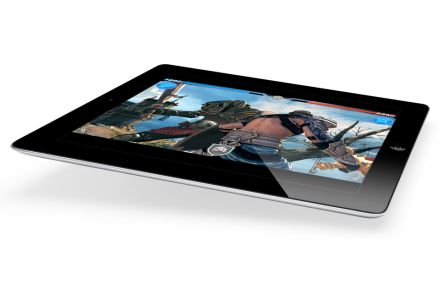Microsoft Sets OneNote Release For iPad

Microsoft is continuing its symbiotic relationship with Apple through a customised OneNote for the iPad
Microsoft is releasing an iOS version of its OneNote collaboration and note-taking software, customised for the iPad.
Despite their ostensible rivalry in areas as diverse as mobile devices and operating systems, Microsoft and Apple nonetheless continue a symbiotic relationship centred on the former’s software for the Mac.
iOS features
 OneNote 1.3 for iOS, with its support for both iPad versions, falls firmly into that tradition: Even as it ports its software onto Apple’s popular tablet, Microsoft is readying its own tablet efforts around Windows 8, due for release sometime in 2012.
OneNote 1.3 for iOS, with its support for both iPad versions, falls firmly into that tradition: Even as it ports its software onto Apple’s popular tablet, Microsoft is readying its own tablet efforts around Windows 8, due for release sometime in 2012.
Other OneNote 1.3 for iOS features include support for several new languages, tabbed user interface, an upgraded Windows Live sign-in experience and the ability to sync notebooks over a Wi-Fi connection.
Rumours have circulated that Microsoft is planning on bringing a tablet-friendly version of Office to the iPad sometime in 2012, at least according to unnamed sources cited recently by The Daily.
That publication added that a new version of Office for Mac OS X Lion is also in development for release sometime in 2012. Considering the size of the iPad user base, productivity software for the tablet could prove a particularly profitable avenue for Microsoft. Presumably, Microsoft is also prepping a touch-optimised version of Office for its own upcoming Windows 8 tablets.
Apple isn’t the only competitor helping Microsoft’s bottom line. Even as Microsoft’s Windows Phone scrambles for traction among smartphone users, the company’s legal team has maneuvered a growing list of Google Android device manufacturers into paying royalties for their products. Microsoft argues that Android violates many of its patents.
Android rivalry
Android royalties or no, Microsoft will need to face down the growing host of Android tablets – and the iPad – with its Windows 8 tablets. Microsoft plans on making a hard push for the operating system as “no compromises”, no matter what form factor it’s loaded upon.
The user interface is bifurcated into two separate environments: one filled with colorful tiles linked to applications, supposedly ideal for tablets, and a more traditional desktop that should appeal to power PC users.
However, some analysts have expressed concerns over Microsoft’s relative lateness to the consumer tablet market.
“For tablets … Windows really isn’t a fast-follower,” Forrester analyst JP Gownder wrote in a 29 November corporate blog posting. “Rather, it’s (at best) a fifth-mover after iPad, Android tablets like the Samsung Galaxy Tab, HP’s now-defunct webOS tablet and the BlackBerry PlayBook tablets.”